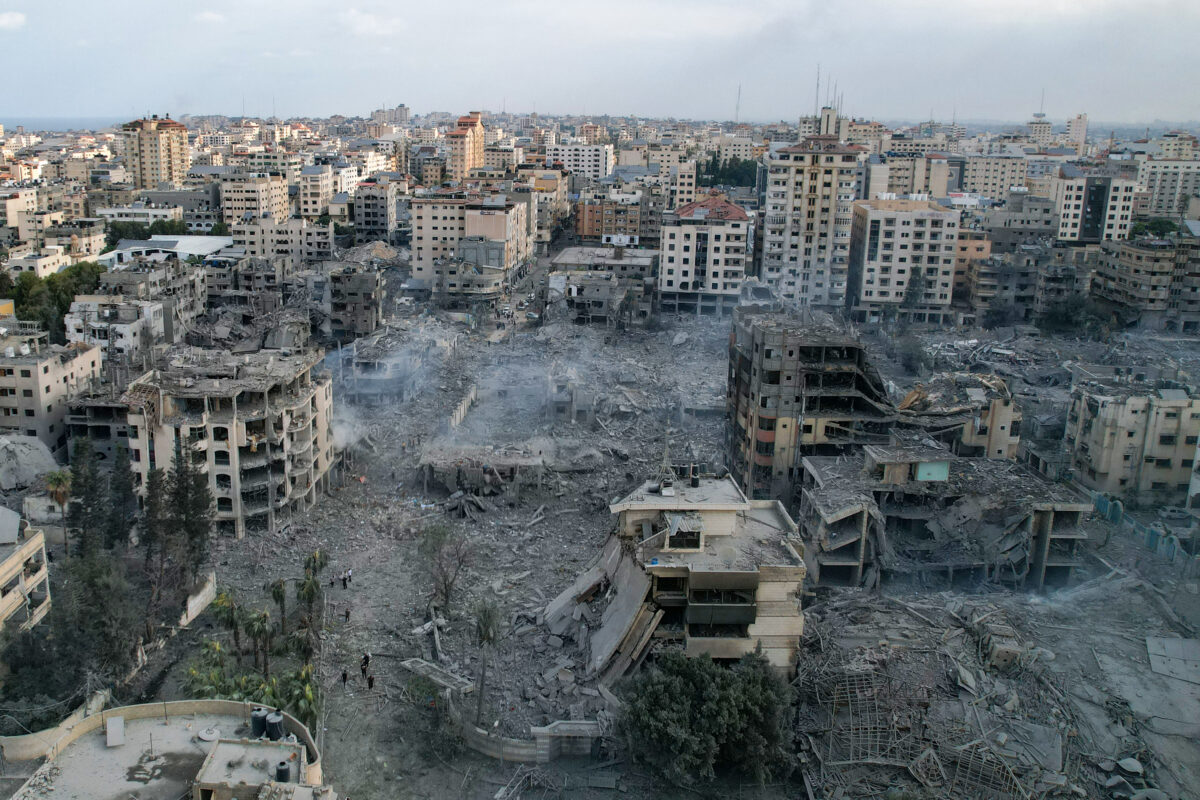
Even before the “Aqsa Deluge” operation began, many rating agencies viewed the performance of the Israeli economy negatively under the rule of Prime Minister Benjamin Netanyahu. The Shekel has been rolling to its weakest levels in years, and since the Hamas incursion, it has worsened.
The currency lost more than 1.2 percent against the dollar on Monday, despite the Bank of Israel’s announcing it would spend $30 billion to support it. In the past few days, the shekel, has reached 3.81 against the US dollar, exceeding the 3.60 average annual rate predicted in Israel’s state budget the report adds. Israel’s central bank also said it will sell up to $30 billion worth of foreign reserves to shore up the shekel Israeli stocks and bonds fell after the attacks.
Many businesses and schools in the country remain closed, while airlines have curtailed most flights to Tel Aviv. It is still to be seen how many buildings were hit and the costs of the military intervention. The Israeli economy main growth engine, the high-tech sector, is struggling. High-interest rates are deterring consumer spending and have unsettled the housing industry. Even before the onslaught of the current war, the budget deficit was growing quickly, mainly because the government spending was running ahead of the budgeted amount.
Rating Agencies
Today, more than one credit rating agency is considering reviewing the assessment of the Israeli economy which continues to be affected by the repercussions of the judicial amendments approved by the Knesset months ago. Standard and Poors, Moody’s Rating Service, will seemingly downgrade Israel ratings in the days to come. We expect that persisting political uncertainty will combine with weaker economic performance in Israel’s key trading partners in Europe and the US as well as tighter monetary policy ” S&P report quoted last week. The rating agency sees Israeli economic growth slowing to 1.5 percent in 2023 from 6.5% in 2022. Last week, Moody’s still expected the country’s economy to grow at a rate of 3% both this year and in 2024, but cautioned that the projection does not “incorporate a negative effect from a prolonged period of social and political tensions.”
In April, Moody’s lowered Israel’s credit outlook from “positive” to “stable,” citing a “deterioration of Israel’s governance” and upheaval over the government’s bid to dramatically overhaul the judiciary.
A geopolitical crisis driving inflationary forces
After decades of instability in the Middle East, the current outbreak of violence in the MENA region plays out differently. “The question will be is this iteration something that will throw the long-term equilibrium out of balance?”; The conflict will have international monetary repercussions. asserting. The IMF annual 2023 report released last week highlighted that the “global outlook of the Middle East and North Africa is uncertain” and that “most countries near- and medium-term growth outlooks remain subdued and downside risks are elevated”. The MENA region’s most vulnerable countries face severe macroeconomic challenges exacerbated by weak institutions and fragile sociopolitical environments, the IMF stated.
Growth is expected to slow in the MENA region as tight policies to fight inflation, reduce vulnerabilities, and rebuild buffers start to dent economic activity in many countries, and agreed oil production cuts curb growth in oil exporters, it added. Many economies are already vulnerable and underperforming due to the aggressive interest rate hikes implemented by central banks to tame inflation the report underlined. Israel foreign investments recorded a significant decline in the first quarter of 2023, reaching 60%, compared to the averages in the first quarters of 2020 and 2022, a report by the finance ministry stated. It also says that the average exit transaction, when an Israeli startup is sold to an international company, decreased by approximately 80% to $56 million in the first quarter of 2023, down from about $307 million in the same period in 2022 and 2020.
The report cites global difficulties such as inflation and the Russian invasion of Ukraine as reasons for a global economic setback. It also notes that the decrease in Israel could be attributed to ‘’local and international uncertainties.’’
It may be premature to assess the damages caused by the “Aqsa Deluge”; at this point, but the economic damage will be evident. The global economy, already rattled by elevated inflation, is now facing another geopolitical crisis in the Middle East and the extent of its repercussions and spillover to international markets will be determined as events unfold. It is certain that economic interests will be severely disrupted in southern Israel, and the country as a whole.
Spillover on oil markets
The conflict between Israel and Hamas sent stock market futures to slump more than 100 points. and many analysts see it has the potential to cause oil prices to further spike and send the global economy into recession, an economist from Moody’s Analytics said. High energy prices and new inflationary trends could undermine the efforts of central banks to bring inflation under control. This can see interest rates at an elevated level for a prolonged period. The war has spooked equity markets all over, with investors shifting towards safe-haven assets. Investors remain cautious and watchful of the global events with risk-off sentiment grappling the market.
Oil prices climbed sharply on Monday. As energy stocks rose, traders keep an eye on how the conflict is set to affect oil production and transportation in the Middle East. Brent Crude, the global standard, rose 4.2 percent to $88.13 a barrel in early trading. West Texas Intermediate, the U.S. standard, climbed 4.7 percent to $86.56.
Prices were largely driven by concerns over demand as rising bond yields sparked attention on the potential disruption to oil supplies and on the reactions from Saudi Arabia and Iran –both members of the Organization of the Petroleum Exporting Countries, or OPEC– amid fears of an escalation of the conflict.
As crude oil prices surge, the threat of high inflation grasps the global economy again. The United States, India, China and other major economies are big importers of oil and can see high imported inflation if the oil prices remain elevated.
On all counts the Gaza war is hitting a region where risks are large and tilted to the downside. Conflict in the Middle East may create new risks to the global economic outlook, leaving central bankers facing renewed inflationary pressures even as they continue to deal with the economic fallout of the COVID pandemic and Russia’s invasion of Ukraine a year ago. Financial sector instability could rise, leading to contagion and more adverse credit conditions, depressing global growth, and exacerbating the MENA financial market volatility and debt sustainability concerns, the IMF outlook says. Tighter-for-longer global financial conditions would also prompt investors to reassess debt sustainability and push the most vulnerable economies to the brink of debt distress, the statement adds.
Still to be accounted for is the impact of the war on the diplomatic side. The war will surely hang over Saudi-Israeli security talks. While the Biden administration publicly remains committed to pressing both sides to normalize diplomatic relations, senior U.S. officials acknowledge that the attacks have thrown a wrench into those efforts. The Saudi reaction after this weekend’s attacks, didn’t explicitly denounce Hamas and blamed Israel for failing to solve the Palestinian crisis.
Maan Barazy is an economist and founder and president of the National Council of Entrepreneurship and Innovation. He tweets @maanbarazy.
The views in this story reflect those of the author alone and do not necessarily reflect the beliefs of NOW.








